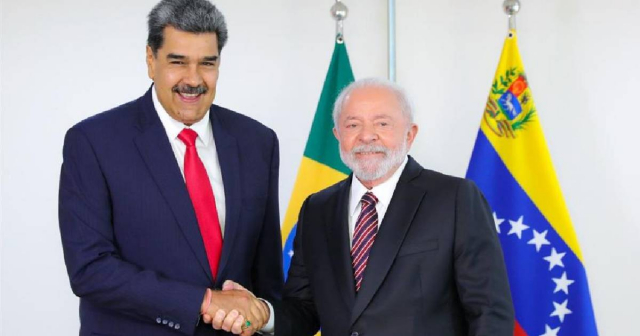The ruler Nicolás Maduro ordered the blockade of the social network X, previously known as Twitter, for a period of ten days in Venezuela.
The decision, announced this Thursday, seeks for the company, owned by Elon Musk, to present "guarantees" to the Venezuelan authorities. Maduro expressed this during a political event where he again attacked the South African-born magnate.
Maduro, who has accused Musk of being part of a "cyber coup" against him, has justified the suspension of the platform by arguing that it is used to sow violence and hatred from abroad.
"Out X for 10 days from Venezuela! In our country, there is a Constitution, Law, Institutions, and a State. 10 days for you to present your documents. Let’s put an end to the plans on social media to sow violence, hatred, and attack Venezuela from abroad. The Venezuelan People deserve respect," the ruling figure declared in a post on the same social media platform that they ordered to be blocked.
After the elections in which he fraudulently proclaimed himself the winner, Maduro lost his government entity verification on the social network X (the gray checkmark), and his account was downgraded to a blue checkmark, available to any user who pays the $8 monthly subscription for X Premium.
In his speech this Thursday, the Chavista leader also expressed his desire to see the birth of new indigenous social networks that would free the country from the influence of foreign platforms like WhatsApp, Instagram, and TikTok, which he also accused of being "multipliers of hate."
These statements come in the context of increasing political and social tension in Venezuela, following the controversial presidential elections on July 28.
The crisis in Venezuela, which has escalated with the protests that followed Maduro's proclamation as re-elected president, has left a worrying toll. According to RTVE, the NGO Provea has reported that at least 24 people have lost their lives during the demonstrations and more than 2,400 have been detained.
The situation becomes even more complicated with the recent arrest of former opposition deputy Américo De Grazia, whose whereabouts were unknown for more than 24 hours. His daughter, María De Grazia, reported through social media that her father is being held at the Bolivarian National Intelligence Service (SEBIN) headquarters, known as El Helicoide, in Caracas.
The detention of De Grazia, along with that of other opposition leaders like Freddy Superlano and Roland Carreño, has been condemned by organizations and political parties in Venezuela. La Causa R, the party to which De Grazia belongs, has stated that the integrity of these detainees rests with the Maduro regime.
Meanwhile, the Democratic Unitary Platform (PUD), the largest opposition coalition in the country, has published 83.5% of the electoral records on a website, which they claim proves the victory of their candidate, Edmundo González Urrutia. This action has been rejected by the Venezuelan government, which considers the records to be "forged documents."
In response to the growing repression, hundreds of people protested this Thursday in Caracas to demand the release of political prisoners and reject state violence. "Freedom and peace" was the central message of the protest, which culminated in a vigil in the city center. The situation in Venezuela remains tense, with a climate of political and social uncertainty that shows no signs of relief in the short term.
What do you think?
COMMENTFiled under:
